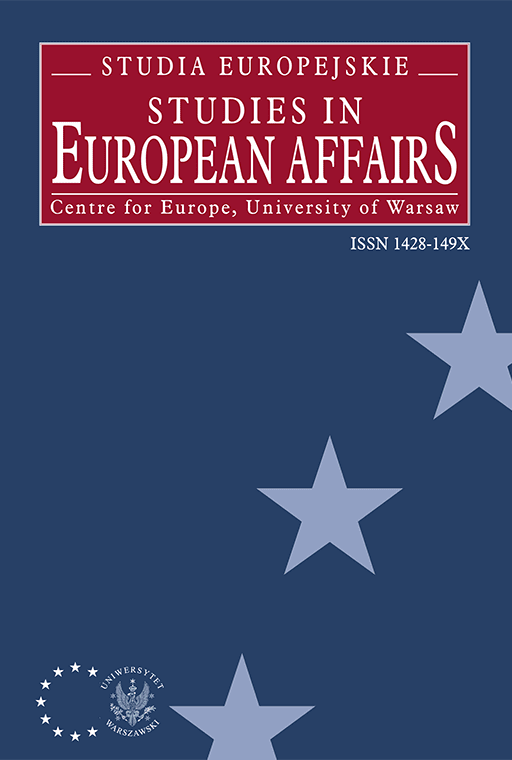
ISSUE: 4/2013
- Volume 68
- Number 4
- 2013
Subscribe NEWSLETTER
Studia Europejskie –
Studies in European Affairs
ISSN: 1428-149X
e-ISSN: 2719-3780
License
Articles published in the journal are under a Creative Commons Attribution – Non Commercial – No Derivatives 4.0 International License
Analiza zjawiska wczesnych nieformalnych porozumień legislacyjnych w zwykłej procedurze ustawodawczej
Early Informal Legislative Agreements in the Ordinary Legislative Procedure
Abstract
The article explores a new phenomenon that has recently emerged in the ordinary legislative procedure: the early informal legislative agreements. They can be defined as legislative acts which are negotiated informally in restricted and secluded trilogues by a group of representatives from the European Parliament the Council and the European Commission, and then adopted formally without any change under the first or early second reading. The aim of the article is to identify and explain the conditions under which early first-reading agreements are likely to occur. Based on social constructivism assumptions, a series of hypotheses are posed. They are complemented by control factors emphasized by rationalist theories. The hypotheses and factors are tested on an original and manually collected database consisting of 615 legislative acts (regulations, directives, decisions and framework decisions) adopted between 1999 and 2009 under the co-decision procedure (at present, ordinary legislative procedure) and subjected to at least one amendment proposed by the European Parliament. The results show that early agreements are better explained by constructivism than rationalism. First, early agreements are the result of socialization into cooperative norms, as their likelihood increases with the time informal trilogues have been in use. Second, early agreements are more likely when legislative acts are negotiated during the 20 months preceding the 2004 and 2009 elections to the European Parliament. Third, European Parliament committees have a profound impact on early agreements. They are likely in the LIBE and ECON whereas unlikely in TRAN and CULT. Fourth, there is no evidence that distributional, regulatory, formal or complex character of the legislative file affects the early conclusion. The only exception is the saliency of the act, although it loses its role when taking into account early second-reading agreements.
Language: Polish
Pages: 101-131
How to Cite:
Harvard
Kirpsza, A. (2013) "Analiza zjawiska wczesnych nieformalnych porozumień legislacyjnych w zwykłej procedurze ustawodawczej". Studia Europejskie – Studies in European Affairs, 4/2013, pp. 101-131.